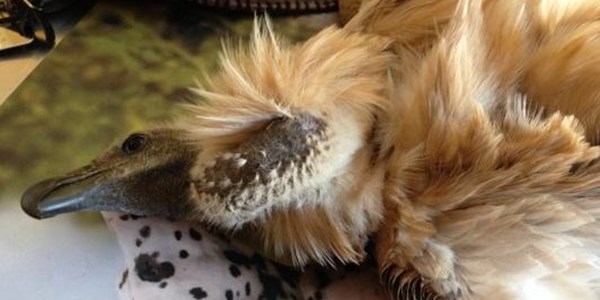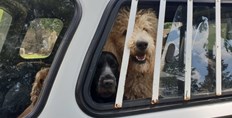Local News
Vulture poisoning in Kby area─── 17:16 Wed, 16 Jul 2014

Kimberley - Following a recent aerial survey of white-backed vulture nests in Kimberley, it was determined that currently the number of breeding attempts, in the same six colonies monitored in 2001, were significantly down from 227 to 156.
The reasons for this decline are not immediately known, but it is suspected that the general decline in numbers in over the past ten years, together with several mass poisoning incidents in the southern African subregion in the last 18 months that has claimed close to 2 000 birds has began to take its toll on the Kimberley colonies too.
With less than 9 000 White-backed Vultures left in South Africa in 2000 and subsequent declines in numbers, the situation has become so serious for this species that its conservation status was uplisted two conservation levels to Endangered in 2012.
Even more shocking was that two suspected poisoned birds were seen near to Kimberley on Tuesday afternoon. On Wednesday, one bird had become completely immobile and was captured. It is now in the care of a local veterinarian whilst the other bird has yet to be found and is likely dead in the veld. The prognosis of the bird under treatment is uncertain, but having already lost around half its body weight, the situation is critical.
Unfortunately, since the white-backed vultures are currently in the middle of their breeding season, even the loss of a single bird from a breeding pair will mean that that pair will fail to raise a chick this season as the remaining adult cannot successfully incubate and raise a chick on its own.
We are now requesting farmers in the area to report any suspected or already dead birds on their property so that we can recover the bodies and carry out the necessary tests to determine the cause. The most likely causes are the pesticides Adlicarb and strychnine since more than one bird has been affected. These poisons are commonly used However, at this point, we cannot rule out the possibility of lead poisoning too. Blood and other bodily fluids will be sent to Onderstepoort Veterinary Institute for analysis.
Although the poisoned birds have been recorded in the Kimberley area, this does not mean that the poisoning attempt occurred nearby. With the birds flying 200 to 300 km per day in search for food, locating the origin may prove impossible. Meanwhile, if the type of poison can be determined, any additional birds brought in for management can be more effectively treated.
The rates of decline and causes of poisoning differ across the region but the result is the same for the vultures. Carcasses laced to target native carnivores such as jackals and hyenas often accidentally kill vultures. In addition, poachers will kill vultures directly since their conspicuous presence can attract the attention of law enforcement agents. In certain regions of Africa, vultures are deliberately killed for food, for the traditional medicine trade, and as a result of direct persecution.
Whatever the means and the drivers, the situation is now critical – vultures are declining across the African continent, largely at a dramatic rate - decreases of up to 97% for some species have been detected in West Africa in just over three decades, while 50-60% rates of decline have been measured in the savannahs of East Africa and southern Africa.
This continent is quickly losing its vultures, and with them the critical and highly efficient ecosystem services they provide. Without scavengers, carcasses are left to rot, disease spreads among other animals, sanitation decreases in and around villages and stray dog populations’ rise in tandem with associated cases of human injuries and fatal rabies incidences.
Vultures are considered protected species in most African countries, and many have enacted legislation that criminalizes the use of poison to kill wildlife. Unfortunately, contradictory agricultural and pest control regulations, poor awareness, lack of enforcement, and poor or inconsistent diagnostic capabilities usually mean that vulture poisoning often remains underreported and under investigated, with conviction and even indictments rare. Some African countries have no laws to protect vultures from poisoning or direct persecution.
The situation in Kimberley is being monitored, but the public is encouraged to report suspected poisonings to Beryl Wilson on 083 292 2008, as well as the presence of dead birds. Many of the birds in the region have yellow wing-tags and metal leg rings, and the recovery of this information from even dead birds is important in identifying the victims and profiling the age class and area of origin of the birds.
Statement supplied














